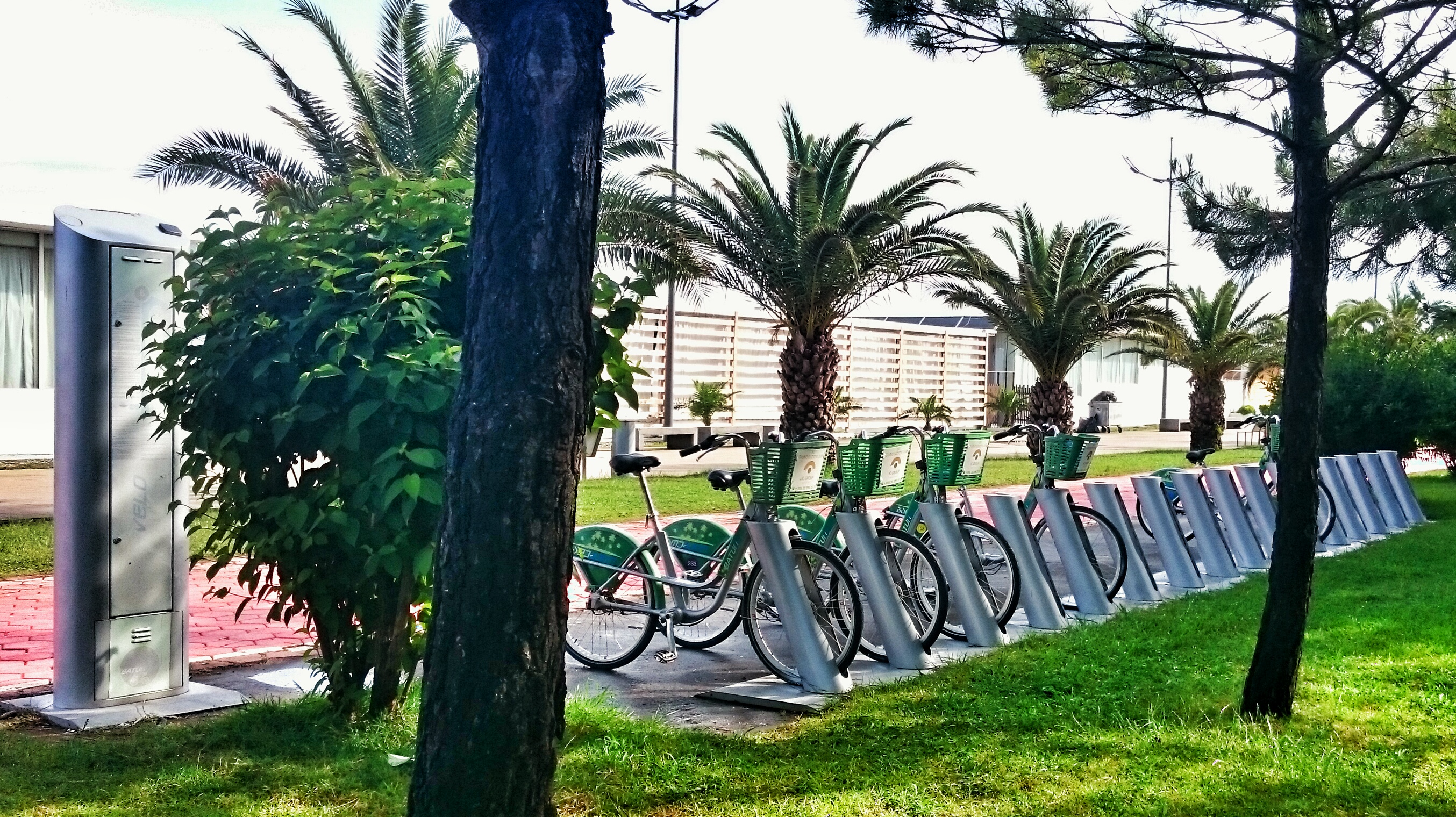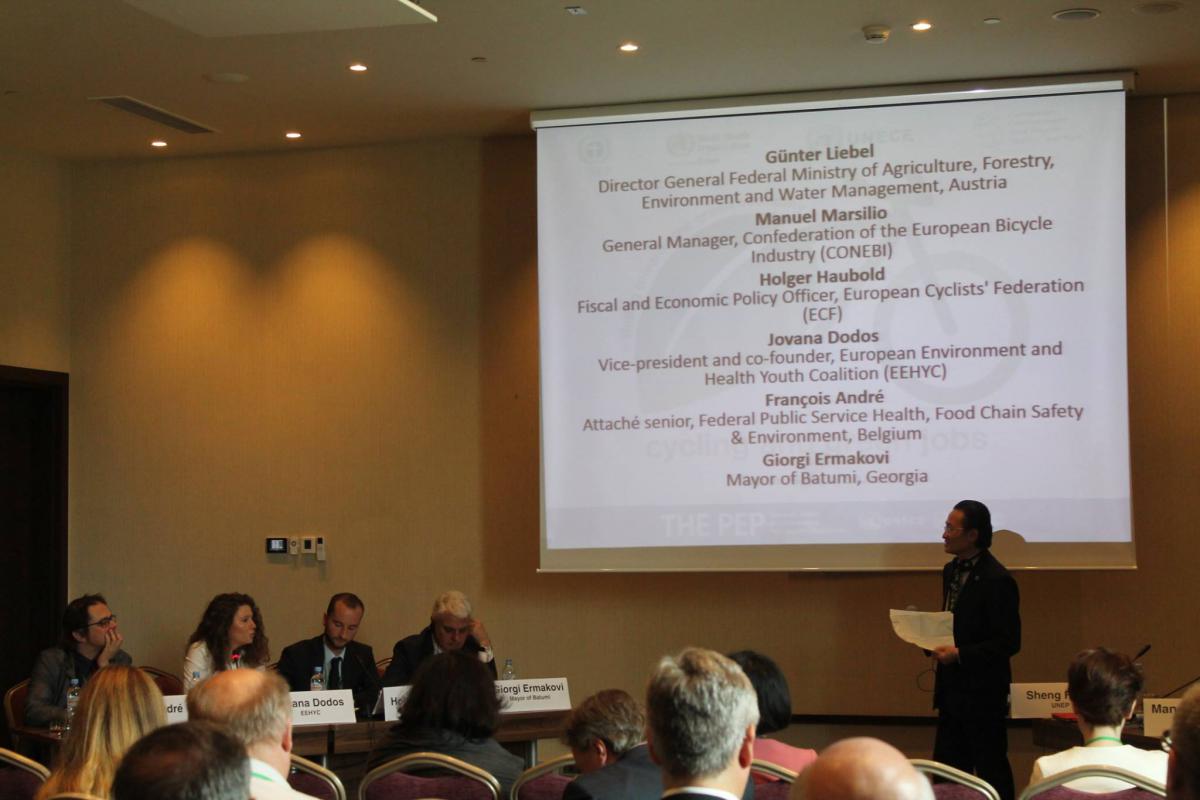
Greening the Pan-European Economy: How cycling can boost the sustainable job machine with 435 000 new jobs in cities
From 8 to 10 June, environment ministers and state secretaries from the pan-European region, including Russia and Central Asia, met in Batumi, Georgia, to discuss the way forward to a greener economy. At this occasion, THE PEP (the Transport, Health and Environment Pan-European Programme) organised a session on the job creation potential of the cycling sector. They presented the impressive first results of their new study: If 56 major cities in the pan-European region would achieve the cycling modal share of Copenhagen, 435 000 new jobs could be created in sectors as diverse as design and manufacture, wholesale, retail and repair, tourism, and services (messengers and bike rental).
The report, which will be published in full later this year, is an updated version of an earlier study from 2014. It bases its estimates on data collected from 37 cities using a standardised approach in the pan-European region. Besides estimating the number of jobs that could be created, the report presents some other important key findings:
- Investing in cycling increases the number of cycling-related jobs;
- More cycling creates new types of jobs;
- Public authorities play a major role in creating green jobs related to cycling.
The study also states that further research into the relationship between cycling jobs and modal share would greatly be facilitated by better and more consistent data collection.

The speakers at the side event reflected on the results of the study. In his keynote speech, Graeme Maxton - Secretary General of the Club of Rome - noted that thinking on economic progress needs to shift towards increasing employment through greater efficiency, use of renewable energy sources and reduction of carbon emissions, stressing that cycling is part of this transition.
The policy framework for more cycling was outlined by Manuel Marsilio, General Manager of the Confederation of the European Bicycle Industry: “Policies like congestion pricing and fuel taxes could help governments and local authorities to invest more in cycling infrastructures”.
The city of Batumi has been working on cycling promotion for some years, said the city’s Mayor Giorgi Ermakovi. Participants at the Ministerial Conference can for example see the results of a workshop that took place in 2010 under the THE PEP, following which a cycling route was built, he noted.
François André, Senior Attaché at the Belgian Federal Service for Health, the Food Safety Chain and the Environment emphasised the need for decision-makers to look at cycling from a broader perspective. “Cycling policy should not be developed as a stand-alone issue but form part of a broader policy package as a tool allowing different but complementary objectives to be reached,” he underlined.
Cycling policy should not be developed as a stand-alone issue but form part of a broader policy package as a tool allowing different but complementary objectives to be reached
François André, Senior Attaché at the Belgian Federal Service for Health, the Food Safety Chain and the Environment
Having a national strategy for cycling combined with initial funding to induce additional investment can indeed be instrumental in increasing cycling levels, explained Günter Liebel, Director General at the Austrian Federal Ministry of Agriculture, Forestry, Environment and Water Management. He highlighted Austria’s national Masterplan for Cycling and a national seed funding project, klima:aktiv mobil, through which a total of €210 million of investment in cycling has been leveraged.
These efforts to promote cycling at the local and national level need to be supported by the recognition of cycling as a means of transport in its own right at the European and international level, added Holger Haubold of the European Cyclists' Federation during the discussion.
The new report, with its focus on cities, complements and confirms earlier findings from the ECF study “Cycling works: Jobs and Job Creation in the European Cycling Economy”, which notably found that 650 000 jobs are linked to cycling in the EU already today and that more than 400 000 new jobs could be created if the modal share of cycling doubled.
Network/Project Involved:
Contact the author
Recent news!
Upcoming events
Contact Us
Avenue des Arts, 7-8
Postal address: Rue de la Charité, 22
1210 Brussels, Belgium









